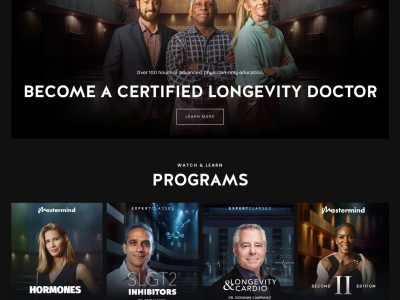Managing heart health is a deeply personal journey, and what works for one person might not be effective for another. That’s why customized care plans are becoming increasingly popular. They offer tailored approaches that address individual needs and preferences, ensuring that each person’s path to better heart health is as unique as they are.
Understanding Personalized Care Plans
So, what exactly is a personalized care plan? Simply put, it’s a healthcare strategy tailored specifically to your health challenges and goals. Unlike one-size-fits-all treatments, personalized care plans take into account your unique medical history, lifestyle, and preferences. They aim to provide more effective and satisfying healthcare experiences by aligning treatments with individual needs.
Personalized care plans differ from generalized treatments in several ways. They focus on comprehensive health assessments, individualized goal setting, and continuous adjustments based on progress and feedback. This approach leads to better patient satisfaction and outcomes, as the care feels more relevant and effective.
Benefits of Customized Care Plans
The benefits of personalized care plans in managing chronic conditions like heart disease are numerous. For one, they can significantly improve treatment adherence. When patients feel that their treatment is tailored to their specific needs, they’re more likely to stick with it. This leads to better health outcomes and a greater sense of control over their health journey.
Moreover, customized care plans enhance patient engagement. When patients are actively involved in creating their health plan, they feel more empowered and invested in their health. This active participation fosters a better understanding of their condition and the steps they need to take to manage it effectively.
Overall satisfaction with care also tends to be higher with personalized plans. Patients appreciate when their unique needs and preferences are acknowledged and addressed. This not only improves their physical health but also their emotional well-being, knowing that they are receiving care designed specifically for them.
Components of a Customized Heart Health Plan
A well-rounded personalized care plan for heart health includes several key components:
- Comprehensive Health Assessment and Risk Evaluation: This involves a thorough review of your medical history, lifestyle factors, and any specific risk factors for heart disease. It provides the foundation for developing a tailored plan.
- Goal Setting: Based on the assessment, realistic and achievable goals are set. These could range from lowering blood pressure or cholesterol levels to improving physical fitness or managing stress better.
- Tailored Diet and Nutrition Recommendations: Diet plays a crucial role in heart health. A personalized plan will include dietary guidelines that suit your tastes and nutritional needs, ensuring you get the right balance of nutrients to support heart health.
- Personalized Exercise and Physical Activity Guidelines: Physical activity is another critical component. The plan will include exercises that match your fitness level and preferences, making it easier to incorporate them into your daily routine.
- Monitoring and Adjustment of Medications: If you’re on medication, the plan will involve regular monitoring and adjustments to ensure optimal effectiveness and minimize side effects.
- Psychological and Emotional Support Strategies: Mental health is closely linked to heart health. The plan may include strategies for managing stress, anxiety, or depression, which can have a significant impact on your overall well-being.
Implementing Customized Care Plans
For healthcare providers and patients alike, implementing a personalized care plan effectively requires clear communication and collaboration. Here are some practical steps:
- Communication and Collaboration: Effective communication between patients and healthcare teams is crucial. Patients should feel comfortable discussing their needs, preferences, and concerns, while providers should actively listen and adapt the care plan accordingly.
- Tools and Technologies: Remote monitoring tools and telehealth services can support ongoing management and adjustments to the care plan. These technologies enable real-time tracking of health metrics and provide convenient access to healthcare services.
- Resources for Patients: Providing patients with resources to track their progress, set goals, and access support networks can enhance their engagement and adherence to the care plan. Apps, online communities, and educational materials can be invaluable tools.
Conclusion
Customized care plans are revolutionizing the way we manage heart health. By addressing the unique needs and preferences of each individual, these plans offer more effective, satisfying, and holistic healthcare experiences. If you’re navigating your heart health journey, consider advocating for a personalized care plan. It could make all the difference in achieving your health goals and maintaining your overall well-being.


